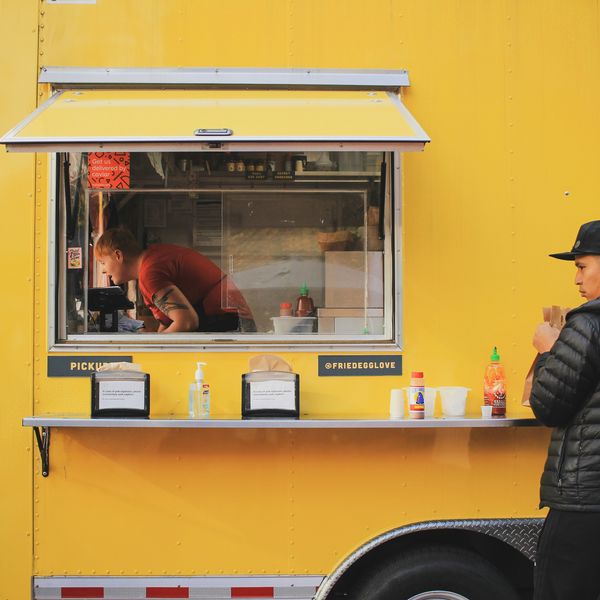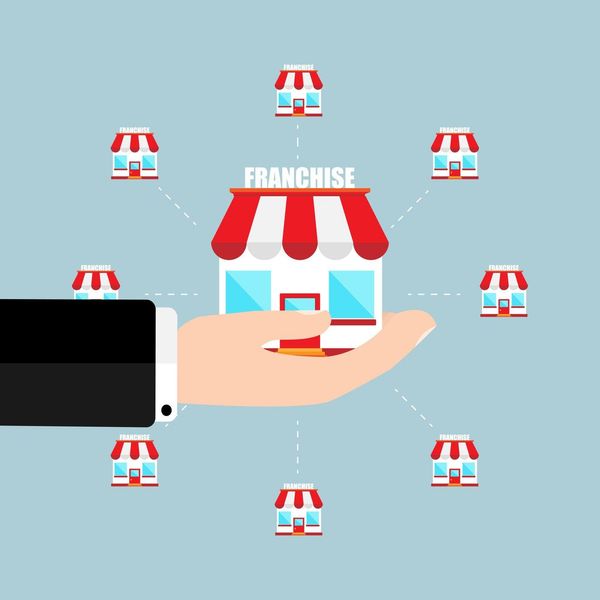
The Truth About Buying a Franchise in Your 20s
When Justin Kopelman was fresh out of college, he didn’t interview for jobs or choose a set career path. Instead, he tried his hand at entrepreneurship and purchased a Pita Pit franchise. At 29, Shawn Ligon struck out for business ownership and invested in a DoodyCalls franchise. Though only in their twenties, after buying franchises, both Kopelman and Ligon are already their own bosses. And they’re not the only ones.
Over the past decade, there has been a noticeable increase in the number of young adults opening franchises, according to David Cahn, founder of Franchise & Business Law Group, a boutique law firm in the Baltimore area that primarily represents early-stage franchisors and startup franchisees.
It sounds glamorous to be twentysomething and already own a franchise, but what’s it really like? We asked Kopelman and Ligon to give us the scoop.
What it's really like to buy a franchise in your twenties
You’re in a position where you can devote all of your time and energy to your franchise
Since purchasing his franchise in January, Ligon and his wife, Aimee, have been working nonstop. They each work at other jobs and then spend the rest of their time building up their DoodyCalls franchise. For the Ligons, the fact that they don’t yet have the responsibility of a family has enabled them to make the sacrifices and work the long hours necessary.
“Our needs our minimal because we're young and healthy,” Shawn Ligon says. “Shelter, clothes and food—that’s about it. If we had a child, though, there would be so much more to consider.”
Your age may help you connect with your customers
Some franchises focus on a younger clientele. Pita Pit’s target market, for example, is college students. Therefore, the fact that Kopelman is just out of college has worked largely to his advantage.
“I was in [the customer’s] shoes right before I opened my own business,” says Kopelman, whose franchise is located in his college town of Clemson, South Carolina. “I know what they want, how they want to be served, and what they expect.” Kopelman plans to open a second location in Greenville, South Carolina, in the near future.
There can be a huge learning curve associated with opening a franchise
Kopelman’s biggest challenge was managing the day-to-day tasks while also dealing with the behind-the-scenes responsibilities. “I felt very confident about serving customers and providing a great product, but doing payroll, paying taxes, rent, and utilities were all foreign to me,” he admits.
While this can be a challenge for franchisees of all ages, younger franchisees might be more prone to glamorizing the concept of owning a franchise without understanding the extent of the commitment or duties it involves. In order to get a better handle on things, Kopelman turned to people with more knowledge and experience.
“I credit a lot of my success to franchisors, other franchisees, family members, and friends,” he says. “Take any advice you receive to heart. Whether it is something small or large, listen to those who have experience.”
More articles from AllBusiness.com:
- 10 Signs of a Great Franchise Opportunity
- Manager’s Guide to Dealing with Discrimination in the Workplace
- 40 Reasons to Buy a Franchise
- Want to Start a Business? Maybe You Should Buy a Franchise
- Understanding the Role of the Franchise Area Developer
Getting funding can be a major obstacle
Getting a bank loan is tough for everyone these days, but can be nearly impossible if you’re young. Ligon tried to secure assistance from the bank, but his efforts were futile. So he took a huge gamble and applied for multiple credit cards that had special promotional rates.
“If the business had not grown [before] the cards’ special promotions ran out, I would have been held personally responsible to pay off the credit cards—with extremely high rates,” explains Ligon. “On the positive side, when everything did work out, I was building credit in the business’s name and, because of that, I’ve learned a great deal more about managing my credit.”
You may face age discrimination
Although you feel like an adult because you own your own franchise, getting others to treat you like one may be difficult. Ligon frequently faces age discrimination.
“I once went into a local dog bakery to talk about cross-advertising, and the owner didn’t take me seriously,” recalls Ligon. “I was just some young guy who picks up dog poop—not even knowing or considering the fact that I was a business owner who spends thousands of dollars a year in advertising.”
What to know before buying a franchise
Are you thinking about buying a franchise? Before you do, read these pointers offered by attorney Cahn:
1. Can you work within a system?
“Measure whether you are willing to work within a system and follow it, with some room for experimentation and modification, but always needing to get franchisor’s approval for changes.”
2. Does the franchisor allow franchisees to be entrepreneurial?
“Discuss with the franchisor whether [he or she] has made changes in the operating system based on franchisee ideas and feedback and allowed franchisees to experiment with modifications on a short-term basis. In other words, will you just be an order taker, or will there be entrepreneurial collaboration?”
3. Talk to current and former franchisees
“Do not rely on oral statements by franchise sales personnel about how much money franchisees make, what the profit margins are on certain product lines, or even how much money you need. For that information, rely on the Franchise Disclosure Document that the franchisor must provide you under law, and also what active and former franchisees tell you.”
If you take these factors into account and go into it knowing what challenges you’ll face, buying a franchise in your twenties can lead to great rewards.
RELATED: Buying a Franchise vs. an Independent Business: What Are the Pros and Cons?
About the Author:
Sara Wilson is a freelance writer who specializes in issues related to small businesses. Contact her at wilson.sara@gmail.com.



